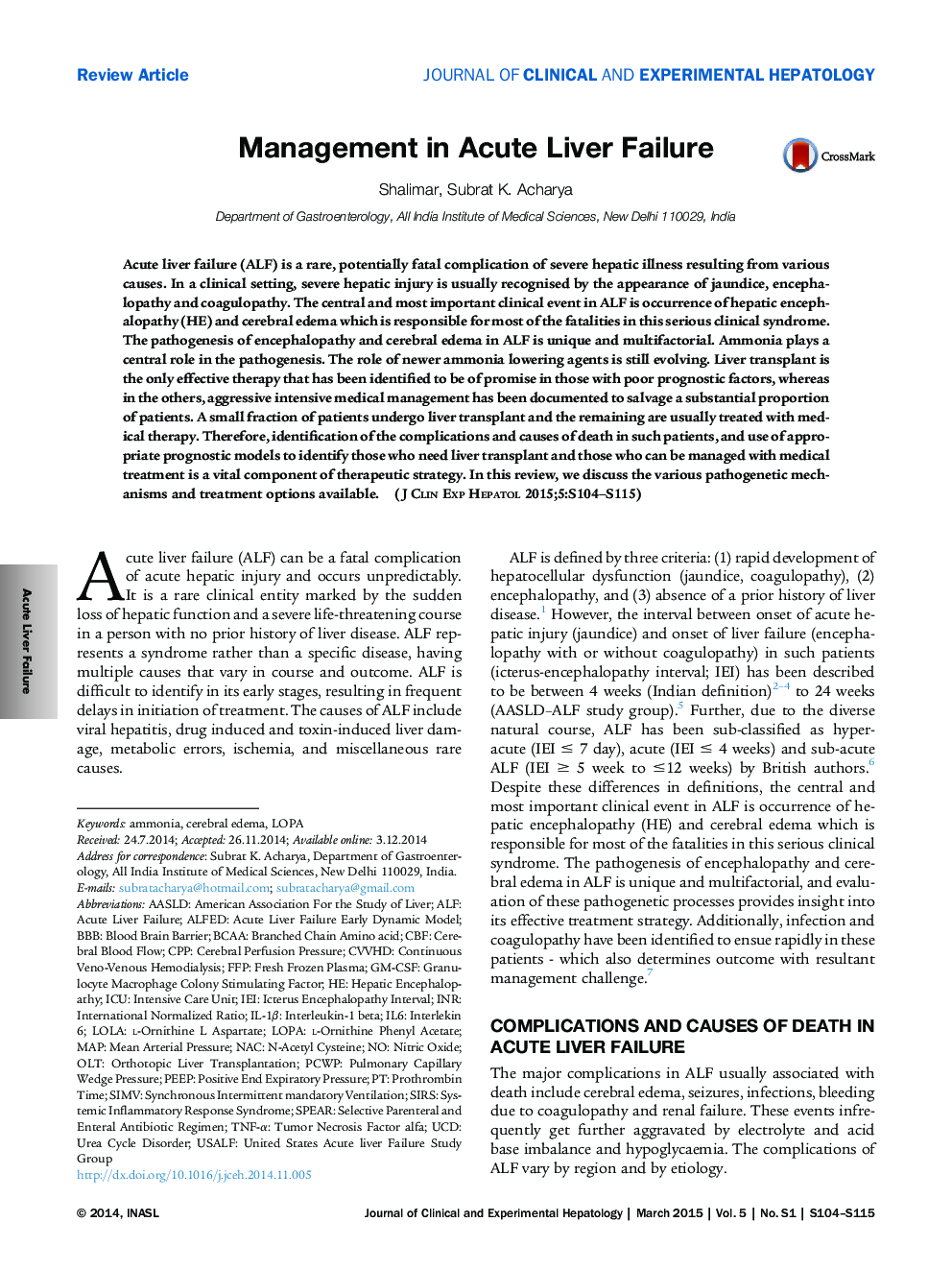| کد مقاله | کد نشریه | سال انتشار | مقاله انگلیسی | نسخه تمام متن |
|---|---|---|---|---|
| 3338703 | 1213886 | 2015 | 12 صفحه PDF | دانلود رایگان |
Acute liver failure (ALF) is a rare, potentially fatal complication of severe hepatic illness resulting from various causes. In a clinical setting, severe hepatic injury is usually recognised by the appearance of jaundice, encephalopathy and coagulopathy. The central and most important clinical event in ALF is occurrence of hepatic encephalopathy (HE) and cerebral edema which is responsible for most of the fatalities in this serious clinical syndrome. The pathogenesis of encephalopathy and cerebral edema in ALF is unique and multifactorial. Ammonia plays a central role in the pathogenesis. The role of newer ammonia lowering agents is still evolving. Liver transplant is the only effective therapy that has been identified to be of promise in those with poor prognostic factors, whereas in the others, aggressive intensive medical management has been documented to salvage a substantial proportion of patients. A small fraction of patients undergo liver transplant and the remaining are usually treated with medical therapy. Therefore, identification of the complications and causes of death in such patients, and use of appropriate prognostic models to identify those who need liver transplant and those who can be managed with medical treatment is a vital component of therapeutic strategy. In this review, we discuss the various pathogenetic mechanisms and treatment options available.
Journal: Journal of Clinical and Experimental Hepatology - Volume 5, Supplement 1, March 2015, Pages S104–S115
